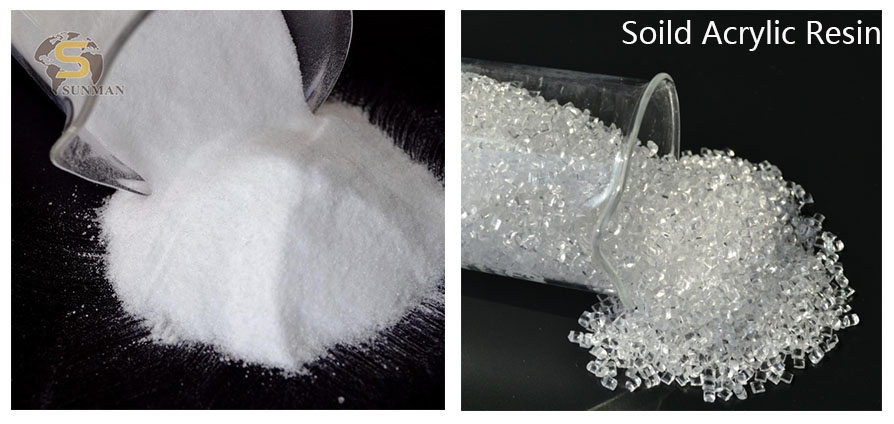What are Acrylic Resins?
Jun 14, 2022An Acrylic resin is a polymeric material (in solution, dispersion or solid) containing acrylic monomers. These monomers are usually esters of acrylic, methacrylic acids or their derivatives, and can be functionalized by introducing different chemical groups (R groups). Others monomers can also be incorporated in the polymer chains in order to obtain resins with different properties or lower cost.
In general Acrylic resins show good chemical and photochemical resistance. They are commonly used in many different applications, from solvent-based and water-based industrial coatings to architectural coatings.
Selecting Acrylic Resins:
Glass Transition Temperature (Tg)
The Glass Transition Temperature (Tg) is the temperature at which a polymeric material will go from a glassy solid state to a liquid state. The Tg of an acrylic resin is defined by the resin formulation. This parameter has a key role on Hardness/flexibility of the final paint film. The following rules can help selecting a resin formulation with suitable Tg:
Tg will strongly depend on the resin monomers (methacrylate monomers have a higher Tg than acrylate ones)
Tg increases with the degree of cross-linking (number of cross-links between 2 polymer chains)
Higher the Tg , harder (less flexible) the film obtained
The presence of other monomers (styrene for example), the nature of the reactive or non-reactive R group present or the Tg of the crosslinking agent used (melamine or isocyanate for example) will of course influence the final Tg.
Viscosity
The viscosity of an acrylic resin depends on the solid content, but the average molecular weight of the polymers in the resin and the molecular weight distribution will also have an impact. Usually the following rules apply:
For the same solid content the higher the average molecular weight of the polymer the higher the viscosity.
When the average molecular weight is the same, narrower the molecular weight distribution, lower is the viscosity.
It is important to notice that the average molecular weight has no influence on the viscosity for latex emulsions. In this specific case viscosity depends on the particle size and size distribution.
Acid Value
The acid is an indicator of the number of carboxyl group present on in the copolymer. It is usually expressed as the amount of KOH needed to neutralize1gof resin (See DIN 53402 or ISO 2114). The number of carboxyl group has an impact on the adhesion properties of the resin and on the solubility in water. The higher the acid value, the higher the number of carboxyl groups.
Hydroxyl Value Number
The hydroxyl value is an indicator of the reactivity of the acrylic resins functionalized with hydroxyl functions (ie the number of OH group available). It is usually expressed as the KOH mass in mg equivalent to the amount of acetic acid reacting during the acetylation of1gof resin. The higher the hydroxyl value, the higher the reactivity (and thus the cross-linking possibilities).
Minimum Film-forming Temperature for Acrylic Dispersion
The Minimum Film-forming Temperature (MFT) is the minimum temperature under which the acrylic latex will lead to a cracked material rather than a continuous film.
For acrylic latexes designed for architectural applications (wall paints) the MFT is usually below5°C.
For latexes designed for industrial applications, where oven curing is used, the MFT can be higher.
PH (For Water-based or Dispersion)
Water-based acrylic resins are usually neutralized with acid or basic buffers to improve resin stability. During the formulation of the coating the PH may evolve and the dispersion can become unstable and coagulate:
If the initial PH is acidic a risk of coagulation of the particles is possible if the PH increases during the paint formulation.
If the PH is basic, the dispersion can usually tolerate higher PH but not a lower one.
